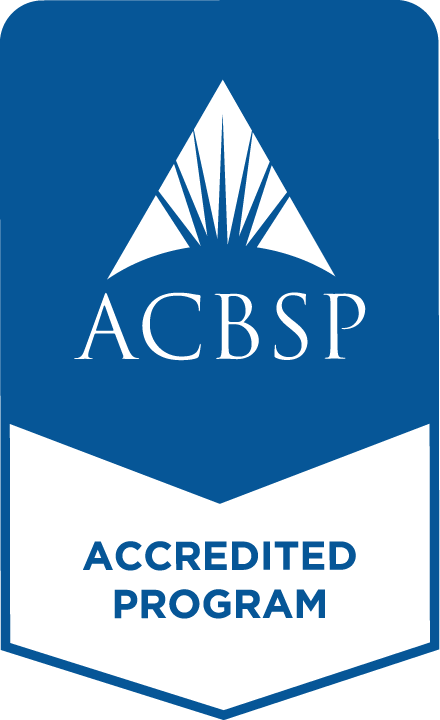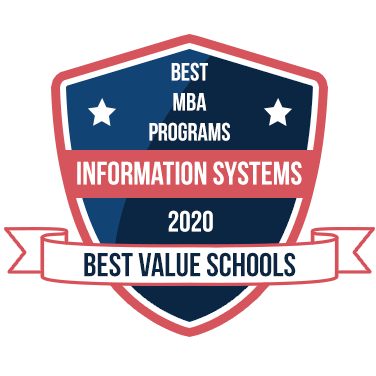Delta State’s Integrated M.B.A. program is a year-long, fully online program that was developed for working business professionals and recent graduates seeking to expand their interpersonal, managerial, and leadership skills. With 6 business concentrations to choose from, we have many options for those looking to advance their careers.
The Integrated M.B.A. program is specifically designed to accommodate the busy schedules of business professionals. Pursue a more fulfilling career in a new profession, or prepare for increased versatility, advancement, and promotional opportunities by enrolling today. Integrated M.B.A. (iMBA) graduates earn a Master of Business Administration (MBA) degree upon graduation. Individuals who would prefer to take classes in-person and at their own pace should choose the Traditional M.B.A. program.
Online
Year Program
No
GMAT Requirement
Why Get an Integrated Business
Master’s Degree at DSU?
Our comprehensive Integrated M.B.A. program provides you with the tools and skills to meet the demands of a dynamic global business environment. Our curriculum emphasizes the primary functions of management – in both application and theory – and decision-making through analytic and data driven research. Program coursework is team-taught in modules. Throughout the semester, our faculty rotate content, allowing students to take a heavier course load, but ensuring that students can focus on only one course at a time within each module.
- Applications accepted year round
- Flexible enrollment
- Online student advisement
- Focuses on one class at a time






Concentrations in the Integrated M.B.A.
- General Business
- Human Resource
- Healthcare Administration
- Nonprofit
- Entertainment Industry
- Information Systems

General Business
The General Business concentration integrates the concepts of strategic planning such as visioning and adapting to internal and external environmental changes, managing the physical operations, and the utilization of information technology to improve the effectiveness and efficiency of the business. In an organization setting ranging from a small business to a global corporation, students develop goals, strategies, and timetables to implement a strategic planning process. This concentration focuses on developing the managerial and leadership skills critical for success in the twenty-first century.

Human Resource Management
The Human Resource Management concentration integrates human resource concepts through an examination of the characteristics and design of performance appraisal systems and the development of effective systems for selecting, classifying, and placing personnel. It covers the theory and practice of compensation management and the effect of alternative wage and salary systems on employee performance. This concentration includes content on current legislation and issues in human resource management.

Healthcare Administration
The Healthcare Administration concentration integrates the concepts of strategic planning such as visioning and adapting to internal and external environmental changes within the health care industry. Core business principles and practices of health care issues are taught to prepare students to effectively manage health care organizations.

Nonprofit Management
The Nonprofit Management concentration examines issues within the nonprofit sector. Nonprofits have the 3rd largest payroll in the U.S. economy, yet approximately 30% of nonprofit organizations (NPOs) fail to exist after 10 years. This program helps to prepare students with a better understanding of how to run a successful NPO. This concentration integrates the theory and practice of philanthropy, nonprofit financial resource management, nonprofit strategic human resource and volunteer management, with strategic project management.
Students can also earn the Graduate Certificate in Nonprofit Management alongside this concentration, which only requires an additional two classes.

Entertainment Industry Studies
The Entertainment Industry Studies concentration encourages exploration and embraces the entrepreneurial spirit. This concentration integrates a variety of professional areas in the entertainment industry, including tour management and event production, the recording, publishing, and film/tv industries, business and legal principles, and marketing of entertainment goods and services.

Information Systems Management
The Information Systems Management concentration integrates the knowledge and skills in data warehousing and data mining technologies required for solving complex problems of data and information management, information retrieval, and knowledge discovery facing modern organizations. It includes the conceptualization, design, and implementation of supply chains in dynamic global markets that strategically utilize information technologies to improve decision-making regarding resources, logistics, procurement, and supply contracting; product and process design; and revenue management, inventory, risk management, mining of corporate data warehouses, and the concepts of enterprise resource planning (ERP) to provide for effective data-driven decision-making for the formulation and execution of business strategies.
What Can I Do With a Master’s Degree
in Business Administration?
One of the primary benefits of an MBA is the acceleration and trajectory of your career. These are critical leadership skills that help business professionals to move up the ranks in their organizations. MBAs are appropriate for students from a wide range of industry and educational backgrounds: business, computer science, technology, arts, sciences, engineering, medical, nonprofit, and more. Our Integrated M.B.A. program trains you to solve complex problems and make informed decisions while providing you with the hard and soft skills needed in business.
MBAs position employees for higher earnings. According to the 2023 GMAC Corporate Recruiter Survey, even after accounting for inflation, employers project higher 2023 MBA salaries in the U.S. compared to 2022 projections. In 2021, the average starting salary for MBA holders was 22-40% higher than for bachelor’s degree holders. The GMAC report found that full-time North American MBA students received a 50% median compensation increase from pre-MBA to post-graduation: from $80,000 to $120,000.
Companies like FedEx, Retzer Resources, Baxter, North Sunflower Medical Center, Bolivar Medical Center, Walmart, Planters Bank, Cleveland State Bank, BankPlus, MS Secretary of State’s Office, Humana, and many others have hired Delta State MBA alumni.

”Being a part of the iMBA program at Delta State allowed me to achieved my educational goals while having a flexible schedule. The online classes made it easier for me to accommodate my football and work schedule without missing a beat in the classroom.
Christian D Malloy, Integrated M.B.A. majorClass of 2023
Scholarships
At Delta State University, we understand the importance of affordable education. While we currently do not offer scholarships specifically for our Integrated M.B.A. program, we do offer an affordable tuition rate with no additional fees for out-of-state students. In addition, we work closely with students to identify and apply for federal and state financial aid programs, as well as student loans and state scholarships. We are committed to providing our students with all of the tools necessary to succeed in business within multiple industries, including access to affordable education and financial support.
Program Goals
The purpose of an M.B.A. is to provide training in theory and practice of business management. The Integrated M.B.A. program is for professionals and managers seeking to add to their skill set in anticipation of increased career opportunities as well as recent graduates looking to continue their studies. We give you the tools you need to advance in your field while maximizing the value of the career experience you already possess. The curriculum enables students to build upon the foundation of business concepts in the areas of financial reporting, analysis, and markets; domestic and global economic environments of organizations; creation and distribution of goods and services; and human behavior in organizations.

Admission Requirements
The following is required to be admitted into the Integrated Master of Business Administration program.
- Has earned a baccalaureate degree which is fully accredited by one of the recognized accrediting agencies, and meets all other requirements for admission to Graduate School.
- 3.0 GPA (exceptions may be made if applicant has 4+ years of professional experience*).
Admission with Academic Conditions. An applicant with a minimum undergraduate GPA of less than 3.0 or work experience may be admitted conditionally with an academic hold. The applicant must earn at least a “B” in each of the first 3 courses in order to continue in the program.
Applicants lacking undergraduate preparation in business courses (with a grade of “C” or higher) will be required to take MBA foundation courses and earn at least a grade of “B.”
Required undergraduate courses needed to avoid Integrated M.B.A. foundation courses include:
| MBA Foundation Course | Undergraduate Courses |
| MBA 515: Managerial Accounting/ Finance | ACC 320: Managerial Accounting FIN 300: Business Finance |
| MBA 525: Management Theory/ Business Law | GBA 220: Legal Environment of Business MGT 300: Principles of Management |
| MBA 535: Economics/ Marketing Theory | ECO 210: Principles of Macroeconomics ECO 211: Principles of Microeconomics MKT 300: Marketing Principles |
| MBA 545: Statistics/ Information Systems | MGT 200: Statistics CIS 205: Microcomputer Applications |
*Note: Years of experience should be managerial/supervisory or professional-level work experience.
Curriculum
Total required credit hours: 30 hours
To graduate, students must have a minimum GPA of 3.0.
The program consists of 3 modules: Financial Strategy Module, Operational Strategy Module, and Emphasis Module.
Students are also required to complete the MGT 695: Strategic Project Management course.
General iMBA Course
| Course Number | Course Title | Credits |
| MGT 695 | Strategic Project Management | 3 |
| TOTAL | 3 | |
*This course is not required for iMBA students with a concentration in Computer Information Systems.
Financial Strategy Module
| Course Number | Course Title | Credits |
| ACC 600 | Managerial Accounting | 3 |
| FIN 600 | Financial Management | 3 |
| MGT/CIS 601 | Survey of Business Analytics | 3 |
| TOTAL | 9 | |
Operational Strategy Module
| Course Number | Course Title | Credits |
| MGT 605 | Human Resource Management | 3 |
| MKT 600 | Strategic Marketing | 3 |
| ECO 612 | Managerial Economics | 3 |
| TOTAL | 9 | |
Emphasis Module (Select one)
General Business
| Course Number | Course Title | Credits |
| MGT 625 | Production/Operation Management | 3 |
| MGT 640 | Managing in a Global Environment | 3 |
| CIS 600 | Managing Information Systems | 3 |
| TOTAL | 9 | |
Human Resource Management
| Course Number | Course Title | Credits |
| MGT 620 | Recruitment, Selection, and Performance Appraisal | 3 |
| MGT 655 | Wage and Salary Administration | 3 |
| MGT 660 | Human Resource Legislation and Current Issues | 3 |
| TOTAL | 9 | |
Healthcare Administration
| Course Number | Course Title | Credits |
| MGT 622 | Health Care Risk Management | 3 |
| MGT 650 | Health Care Law and Ethics | 3 |
| MGT 670 | Health Care Management and Policies | 3 |
| TOTAL | 9 | |
Nonprofit Management
| Course Number | Course Title | Credits |
| MGT 606 | Nonprofit Strategic Human Resources and Volunteer Management | 3 |
| MGT 667 | Theory and Practice of Philanthropy | 3 |
| FIN 624 | Nonprofit Financial and Resource Management | 3 |
| TOTAL | 9 | |
| Optional courses needed to receive a certificate in Nonprofit Management. All 6 Nonprofit Management Courses must be completed to receive the certificate. | ||
| MGT 607 | Non-profit Impactful Board Governance | 3 |
| MGT 608 | Nonprofit Program Planning and Evaluation | 3 |
| TOTAL | 6 | |
Entertainment Industry Studies
| Course Number | Course Title | Credits |
| MGT/DMI 603 | The Business of Entertainment | 3 |
| MGT/DMI 635 | Managing Live Entertainment | 3 |
| MGT/DMI 665 | Entertainment Legal Issues | 3 |
| TOTAL | 9 | |
Information Systems Management
| Course Number | Course Title | Credits |
| CIS 606 | Enterprise Data Warehousing | 3 |
| CIS 618 | Business Intelligence | 3 |
| CIS 624 | Enterprise Resource Planning | 3 |
| CIS 630 | Information Technology Strategy | 3 |
| TOTAL | 12 | |
Degree Requirements
Students must complete the required 30 hours plus any foundational course requirements with a 3.0+ GPA. No thesis or capstone is required.
For more information on degree requirements, specifics on courses needed to complete the degree, and policies, consult the Graduate Academic Catalog.

